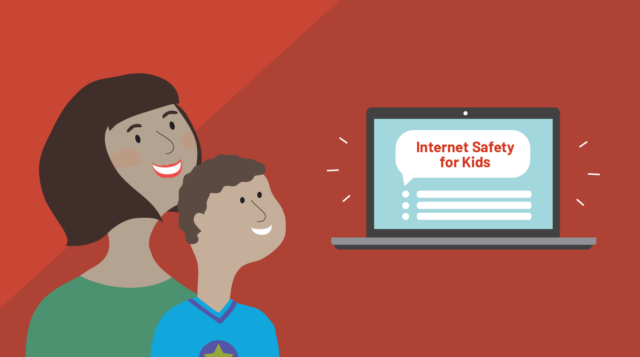
Like other places in the nation, the city of Chicago is plagued by an epidemic of child abuse, much of it originating from online communication with strangers. The state of Illinois conducts tens of thousands of investigations into child abuse every year, ranging from allegations of abuse and neglect to child exploitation, human trafficking, and sexual abuse.
These sobering statistics are partly due to the increased availability of unregulated communication with children aided by online platforms. Approximately two million children are exploited every year in the global commercial sex trade, and countless others are exposed to predatory content. Still, others are abused and unreported. The data indicates that there is a very real global problem with child abuse, aided by online communication.

Communication platforms and digital device technology do make many daily functions easier, but there can be a threat when children access the wrong content or communicate with the wrong person. Social media platforms are especially dangerous for children, even though these sites are highly appealing to children. In order to combat concerns about child safety many social media platforms have implemented age restrictions, but children have consistently found ways to bypass these restrictions.
And while most parents are aware of online dangers, they often underestimate how prevalent these risks are for their children. According to the FBI, around 500,000 online predators are connected every day, posing threats to any children who may communicate with them. For parents in Chicago, this hits home as it means that they don’t need to only be concerned about predators living in the city. Rather, predators located anywhere in the world may be a threat to their children. If you think the danger isn’t real or prevalent, consider the following statistics:

- One in five US teenagers have received an unwanted sexual solicitation online. This ranges from requests to engage in sexual activity to requests for personal sexual information.
- Approximately 30% of all internet sexual exploitation victims are boys, meaning that all parents much be concerned about online predation.
- In 100% of teen cases, the victims of sexual predators willingly met with their abuser.
- Three-quarters of children are willing to provide personal information about themselves and their families in exchange for goods and services.
- One-third of teens are friends with people on social platforms that they have not met in person.
- Sextortion is becoming more common. With this strategy, a predator will convince a child to send them an inappropriate photo or video. Once sent, the predator will use this to blackmail the child into sending more explicit content.
- More than 50% of victims are between the ages of 12 and 15. The majority of these instances start with contact between the child and the predator in chat rooms or instant messaging features in social media platforms.
- More than 21.7 million cases of inappropriate instances of online communication have been reported to the CyberTipline from across the nation in recent years. Common platforms used include YouTube, Snapchat, Facebook, TikTok, and Instagram, among others. Inappropriate incidents range from sharing sexual abuse materials, sexist and racist content, or communication featuring swearing, profanity, terrorism, cruelty, suicide, and eating disorders.
Given this data, it is clear that the safety of children online cannot be guaranteed. It is up to the parents to step up and implement safeguards for their children. Tania Haigh is the founder of the Kids Too Movement, which seeks to make the online world a safer place for all kids.

She offers several tips that parents can follow that will increase the safety of their children while connected.
- Communicate with your children. Many parents avoid talking to their children about online safety in an attempt to shelter them from some of the harsh realities of life. Unfortunately, this leaves children unprepared for a potentially dangerous interaction. If a child is old enough to be online, they should be old enough to understand how to protect themselves there. There are ways to have age-appropriate conversations with children at any developmental stage that explain potential threats and help your child respond appropriately. These discussions can help your child alert you if any suspicious communication is initiated.
- Disable chat features. The vast majority of predatory communication originates in unmonitored chat rooms across many social media and online gaming platforms. When you disable chat features, you can limit the amount of communication your child has with strangers, and this is one of the most effective strategies for keeping your kids safe online.
- Create rules for digital use. Most predatory behavior occurs after 8 PM. It can be very beneficial to limit your child’s online access, particularly during this time of the day. By requiring your child to log off and return any digital devices before bedtime, you can dramatically reduce the likelihood that your child will encounter a predator. If your child has access to their digital devices all night, you won’t be able to monitor their usage or communication during the riskiest times of the day.
- Configure parental control apps. Let’s face it; parents are busy and parental control apps can be hard to use, implement, and monitor. However, the small time investment it takes to implement these settings can be well worth it since these apps can filter all of the content on your child’s devices and send a notification when there is any potentially worrisome activity.

As one of the biggest cities in the United States, living in Chicago is an attractive option for people at any stage in their life, including those with young children. Unfortunately, like many other big cities, Chicago is plagued with a reputation for violence, and living here presents many dangers for children. On top of that, the children of Chicago may fall victim to online predators located anywhere in the world. It’s clear that parents in Chicago have a lot to worry about and protecting their children from online dangers is likely at the top the of list.
The strategies provided by Tania Haigh can be used to keep kids safer, and may even prevent them from falling victim to a child predator. And speaking with your children also helps open the doors to build a foundation of trust so that children feel safe when coming to their parents when concerned about online dangers. There are many dangers we cannot protect our children from, but online predation isn’t one of them. With the right safeguards and rules of use, combined with a trusting dialogue between parents and children, we can all make our children safer!









